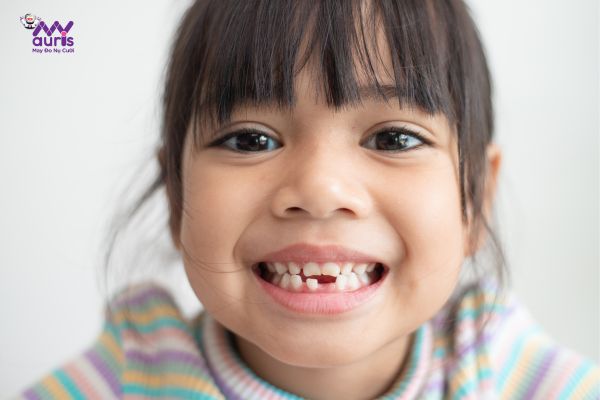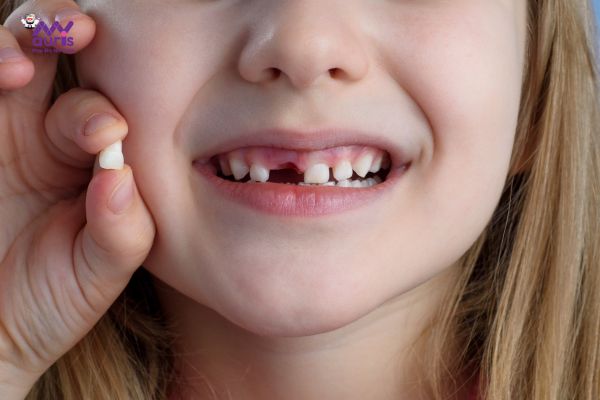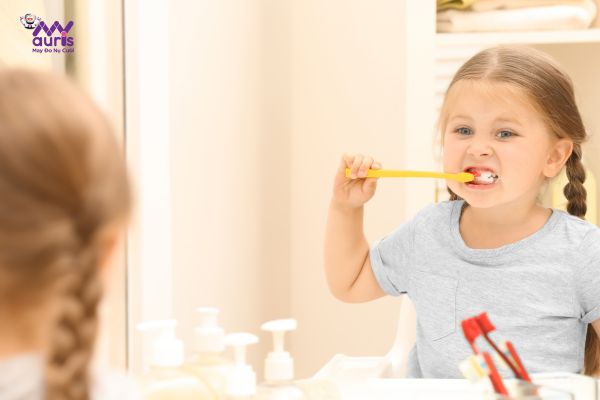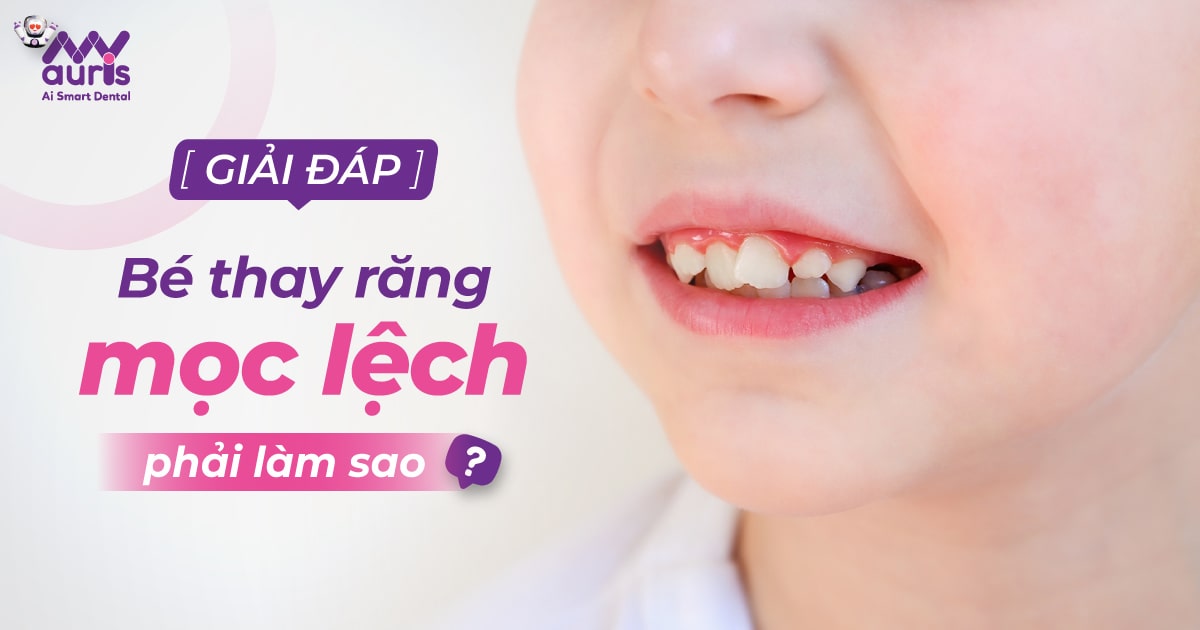Teeth growing crookedly after a child’s teeth change is a common condition. However, if you do not intervene to correct and adjust early, your child’s teeth will later lose their aesthetics, hinder chewing and cause many oral health problems. So what to do when your baby replaces crooked teeth, let’s find out in detail with My Auris through the following article.
What are crooked teeth in children?
The condition of misaligned teeth in children is also known as malocclusion. This condition is caused by many reasons. Misaligned teeth make many parents worry that their children’s permanent teeth will be affected in the future. Because the permanent teeth will later grow in the exact position of the replacement baby teeth.
Parents monitor the development of teeth when children begin to change teeth. If teeth are discovered to be misaligned or have problems, you need to take your child to see a dentist to examine, check, adjust and correct the deviations. If corrected early, the deviation will quickly improve without affecting the future.

Causes of crooked teeth in children
There are many reasons why children’s teeth grow crooked after tooth replacement. Finding out the cause also helps parents find appropriate solutions for their children.
Some common causes of crooked teeth when teeth are replaced in children:
- Genetics: if your grandparents or parents have misaligned teeth, malocclusion, or underbite, the likelihood of your child’s permanent teeth also being misaligned is higher than other children.
- Losing baby teeth too early: baby teeth will have a certain time, a certain time to replace them, but if the teeth are damaged, decayed or broken too early and have to be removed, there is a risk that permanent tartar will grow together. This causes children’s teeth to grow misaligned and crowded together.
- Bad habits: children with bad habits such as regularly sucking their thumb, pushing their tongue, grinding their teeth, breathing through their mouth, drinking a bottle, etc. all increase the risk of their permanent teeth being misaligned.
- Jaw size: some children’s jaw size is too small and there is not enough room for the teeth to grow. Therefore, when permanent teeth grow, they are easily crowded together, leading to misalignment.
- Poor diet and nutrition: children’s nutritional deficiencies, especially calcium minerals, also cause weak teeth and increase the risk of crooked teeth.
- Due to some injuries to the face or jaw due to accidents, falls, etc.

Signs that babies replace crooked teeth
When they reach the age of changing teeth, parents should monitor their child’s teeth development and change of baby teeth. If you notice some of the following signs, it may indicate that your child has misaligned teeth;
- Overbite: a condition in which the upper front teeth protrude outward compared to the lower teeth.
- Underbite: a condition where the teeth in the lower jaw protrude much more than the teeth in the upper jaw.
- Open bite: the teeth in the two jaws do not correlate
- Crossbite: The upper posterior teeth lie more lingually than the lower posterior teeth.
- The teeth on the jaw are not evenly spaced but are misaligned and crooked.

Misaligned teeth in children, if not corrected early, will cause many impacts on aesthetics and chewing in the future:
- Eating problems, difficulty chewing, difficulty chewing, reduced chewing force
- Tooth decay
- Gum disease
- Jaw joint problems
- Loss of aesthetics, poor confidence with peers
What should I do when my baby replaces crooked teeth?
Parents are worried, is there any way to fix crooked teeth in children or what should children do to replace crooked teeth? According to doctors, parents should stay calm and take some measures as follows:
Take children for regular dental check-ups and re-examination
When children start to change teeth, parents should take them to see a dentist to check the tooth development process and the position of permanent teeth. how to go up. This helps doctors monitor and understand the child’s condition. Not only does it protect and improve your baby’s oral health, but it also prevents bad conditions that occur when children grow permanent teeth.
At this time, depending on the level and cause of the deviation, the doctor will give appropriate correction. Doctors can let children use appliances to correct misalignments as well as ways to fix jaw problems. Children are still young, their jaw bones are still soft and can be adjusted easily, so they can quickly straighten their teeth.

Adjust children’s bad habits
Long-term bad habits will negatively affect oral health as well as increase tooth misalignment. Therefore, in addition to taking children to see a doctor, parents should also prevent their children’s bad habits:
- Do not let children use pacifiers frequently
- Find ways to prevent children from breathing through their mouth for long periods of time
- Prevent children from thumb sucking
- Prevent children from biting objects
- Prevents children from pushing their tongue when speaking or swallowing
- Train children to chew food evenly on both sides, avoid children only chewing food on one side
- Avoid letting your child lie face down or on one side for long periods of time.
Monitor children’s dental health status
During the process of children changing teeth, parents should also check their children’s oral health. Parents should monitor their children’s oral hygiene carefully as permanent teeth grow crookedlyany,… In addition, parents also need to change their children’s nutritional regimen to ensure enough nutrients, especially calcium, vitamin D, and phosphorus, which are good for strong teeth.

Hopefully with the information in the article about baby What to do to replace crooked teeth helps people better understand this condition. From there, know how to care for, monitor and pay attention to your child’s oral health. This helps children ensure oral health, teeth grow evenly and straight, and balance the physiological bite effectively. Please contact My auris dentistry immediately for advice and to schedule your child’s examination as soon as possible.
Anh Thy





